Explore the Interwebz: 30 English Slang Terms for Internet Noobs
OMG r u ready 4 a blog post that’s totes awesome?
Wait, what??
That first sentence might not belong in a blog post, but you’ll often find strange phrases, abbreviations and words like that on the Internet.
Places like social media, comments sections and online forums, for example, use English that might seem completely new to you.
That’s because talking on the Internet can be very different from talking in person or even in emails. Online English is casual and personal, and uses a lot of slang.
So to help you keep up, we’ve made a list of 30 slang terms you might see online. But first…
Download: This blog post is available as a convenient and portable PDF that you can take anywhere. Click here to get a copy. (Download)
How Internet English Is Different from Casual English
Being one of the registers of English, Casual English is the register you use around friends and people you know well. On the web, there are generally two types of Internet English.
The first is Formal Internet English. This is used in formal internet situations such as in an important email or in a remote working environment.
The second type of Internet English is Informal Internet English. Since so much of our informal communication today happens online, the Internet has developed almost its own language. This language is even more casual and has many abbreviations (shortenings of words and phrases).
Before you dive into the world of Informal Internet English, remember that there are many profanities and curses in Internet slang, and sometimes words are misspelled or used incorrectly. Many of the words people use online all the time would not be used in face-to-face communication. So learn this side of English only for online use!
The English language is always changing, though at a slow pace. Online, everything happens much faster. The language changes almost every day, as sayings, images and videos “go viral” (spread from person to person very quickly). You might come online one day to see everyone sharing a new picture, or see a new saying that you’ve never seen before.
To keep up with English words even as the language changes so quickly, try learning English with the videos on FluentU.
Give it a free try and let your vocabulary skyrocket!Some words and phrases have been around for a long time, and are used often. These are the terms you should try to learn if you want to communicate better online.
Internet Slang and Abbreviations
When you tell someone goodbye, you usually just say “bye.” This is a shortening that was created to save time since the word “goodbye” is so common.
The same is true for the Internet! Much of Internet slang is made up of abbreviations and shortenings. Here some of the most commonly used Internet abbreviations:
- lol — laughing out loud
- brb — be right back
- btw — by the way
- lmk — let me know
- g2g — got to go
If you can’t figure out what a certain abbreviation stands for, try checking Google. Just search for “what does [abbreviation] stand for?” and replace the [abbreviation] with the term you’re confused about.
30 Essential Internet Slang Words and Phrases in English
A few websites have their own terminology, abbreviations and slang. Twitter and Reddit, two social media websites, are two big sites that use a lot of their own slang.
On Twitter
1. Hashtag
Many websites and blogs use tags to make it easier to search for content. When Twitter first came out, it didn’t have the option to add these tags. People who used Twitter decided to create their own way of tagging their posts: the hashtag.
Hashtags use the # symbol before the keywords, which are written without spaces. The hashtag has expanded into the rest of the Internet, and doesn’t only exist on Twitter now.
One example of a popular hashtag is #TBT, which stands for Throwback Thursday. People share old things from their childhoods (remember phone cords and dial-up modems?) and use that hashtag. #TBT is used on other social media websites as well, even on days other than Thursday.
Here you’ll see an example with the funny hashtag #ICanEatWhateverIWant.
Example:
2. DM (Direct Message)
A direct message, or DM, is a term used on Twitter for a private communication with someone. Each user has a “Messages” page where they can read and send direct messages to other users.
The word is also used as a verb, as shown in the example below.
Example:
3. RT (Retweet)
A retweet on Twitter is when someone shares your tweet with their followers. Retweeting something means you like what that person said, agree with it or have something to add.
Example:
Oh my gosh! Beyoncé just retweeted my tweet!! I can’t believe it!
On Reddit
4. AMA (Ask Me Anything)
The AMA was first made popular on the sharing forum and community, Reddit. Short for “Ask Me Anything,” an AMA is when someone, usually well-known or from an interesting background, goes online and answers questions posed by the community.
Example:
Even President Obama has done an AMA!
If you use Reddit, you’ll notice lots of other abbreviations—such as ELI5 (Explain Like I’m 5), IIRC (If I Recall Correctly) and TIL (Today I Learned).
On Forums
A forum is a comment board where people discuss different topics. Forums have their own slang too!
5. Bump
In forums, topics are usually listed in the order of the last comment received. If they move too far down the list, they get onto the second page, and are not as likely to be seen.
When you want to push a topic back to the top of the list, you “bump” the topic by just writing “bump” as a new comment.
Example:
I still don’t know what kind of bug I found in my sink. Bump!
6. Troll
Online, trolls are people who take pleasure from starting disagreements and angering people. Trolls usually post or respond to comments in a way that will annoy or anger the most people possible.
There’s a saying online, “Don’t feed the trolls.” This means you shouldn’t interact with someone who is “trolling,” since it will only encourage them.
You usually find trolls hanging out on forums, but they can be anywhere online, from your Facebook, to the comments section on a news article.
Example:
A: Someone left a mean comment on my blog post.
B: Ignore him, he’s just trolling you.
7. Lurker
This is someone who visits a forum, blog or website often, but doesn’t leave any comments. The word can be used in offline conversations too—”to lurk” means to hide just out of sight.
Example:
I really want my lurkers to comment, so I’m going to have a giveaway on the blog!
General Internet Slang
8. IMHO (In My Humble Opinion)
“In my humble opinion,” or just “in my opinion” can be used before stating your opinion on a matter being discussed. Adding the word “humble” makes the opinion seem less important or significant.
Example:
IMHO, you should check out Creativa.
Creativa provides premium, highly produced videos for learning English and business communication skills. Creativa provides entertaining videos, useful but unexpected tips, and goes beyond just English to teach you body language, intonation and specific pronunciation tips. Creativa is a new product from the FluentU team.
Here’s a sample video from Creativa’s Mastering Business Video Calls in English course, which has tips for expressing yourself effectively:
9. Meme
The word “meme” has been around longer than the Internet. Outside the Internet, the word describes a part of culture that developed because it was passed on from one person to another, usually by imitation. A meme can be an idea, a tune, an image—anything that can be passed on and altered.
Online, though, a meme is an image, text or video that’s copied and modified over and over again. Most of the time, people add their own funny change to the image or text.
You’ve probably already seen a few memes, like Grumpy Cat or Confession Bear.
If you’re not sure what a certain meme means, you can see information about it at Know Your Meme.
Example:
When the singer Drake released his ridiculous music video for “Hotline Bling,” it immediately became a meme. People copied and parodied (made fun of) the video with their own silly videos and vines (very short videos).
10. Facepalm
A facepalm is a gesture where you put the palm of your hand on your face. This is usually done in response to someone saying something very obvious or not very smart.
Example:
A: I just realized the Apple logo looks like an apple!
B: …*Facepalm*
11. Epic fail
When someone fails, usually due to an easily avoided mistake, people online call it an “epic fail.” The word “epic” actually refers to old poems and stories that described the long and awesome adventures of legendary heroes.
Today we use the word “epic” to talk about anything huge or important, like that epic sandwich we ate last night.
Example:
Did that guy just crash his bike into the only tree on the street? What an epic fail.
12. All the things
This phrase comes from a blog post on Hyperbole and a Half, where the blogger describes why she will never be an adult. One of the images has a triumphant (very happy and proud) girl, and says “Clean all the things!”
Now this phrase is used as a hyperbole (exaggeration), and usually looks like “X all the Y”: Eat all the pizzas, catch all the Pokemon, pass all the tests. It’s actually another meme!
Example:
When I get rich I’m going to buy all the houses. All of them.
13. I can’t even
This is another way of saying “I’m speechless.” This phrase is used when something is so incredible or unbelievable that you have no words to respond with.
Grammatically, this is not a complete sentence or thought, but on the Internet it’s used as one. Sometimes this phrase is paired with the word “literally,” as in, “Literally, I can’t even” or “Literally, I can’t.”
Example:
What just happened?! I can’t even.
14. Well played
When someone has a very clever response, you can say “well played.” In everyday conversation the equivalent of this is saying “touche.”
“Well played” can also be used when someone proves you wrong in an obvious way.
Example:
A: This is the best Tuesday ever!
B: Today’s Wednesday.
A: …Well played.
15. FAQ (Frequently Asked Questions)
Many websites have an FAQ section. It’s a place where they answer frequently asked questions, or questions which are asked a lot.
The term “FAQ” is not used often in conversations, but it’s good to know for navigating websites.
Example:
FluentU has a pretty impressive and large FAQ!
16. Totes / Adorbs
“Totes” and “adorbs” are shortened versions of “totally” and “adorable.” It’s a cute way of saying those words, though used mostly by younger females.
Example:
That bag is adorbs, you should totes get it.
17. Just sayin’
This phrase is used at the end of a sentence to show that it’s not necessarily what you believe. Many times, it’s a way to deliver a rude or mean sentence, and make it seem less rude.
Example:
You look like you haven’t slept in days! Just sayin’…
18. Pwned
Mostly used in online games, “pwned” is an intentional misspelling of the word “owned.” Both mean that someone got defeated or humiliated.
Example:
I studied so hard but still got an F… that test pwned me.
19. Lag
Even if you’re lucky enough to have a steady Internet connection or a great computer, you’ve probably experienced lag. Lag is when a computer application is slow to respond, or any other device slows down because of a poor connection or old hardware (computer parts).
The term is often used when videos or online games are too slow/choppy to show what’s happening in real time.
The word “lag” is also used outside of the Internet, to mean the same thing: to fall behind, or to go slower than everyone else.
Example:
I could have gotten an amazing photo of a butterfly, but my camera app lagged and the butterfly flew away..
20. Noob
Someone who is new to something, a beginner. Noob can be a mean way of saying someone ignorant about a topic or is not good at something, or it can be a way to explain that you’re new and don’t know much yet. You might also see it written as “newb” or “n00b” (with the number zero used as the letter “o”).
Example:
Please forgive my English skills, I’m just a noob.
21. TBH (To Be Honest)
The phrase “to be honest” can be used on or offline in the same way. It’s a filler phrase, meaning it doesn’t really add anything to the sentence you’re about to say.
But many people use it when they feel like what they’re about to say is extra honest, something they really believe, or something they’ve thought about thoroughly before saying.
Example:
I’ve never watched the original Star Wars trilogy, TBH.
22. Photobomb
When someone or something appears in a photo unexpectedly, without the photographer meaning to include it. There are many images online where animals photobombed people taking pictures.
Sometimes people will photobomb others’ pictures on purpose by making sneaking into the picture at the last second, like in this one.
Example:
This would have been a great picture if that bird hadn’t photobombed it at the last second!
23. Spam
Spam is a type of email (and regular mail) which is not meaningful or personal to you. Spam emails are usually annoying advertisements that you never wanted to receive. Most spam is filtered out by email providers—like Google and Yahoo—into a separate “Spam” folder.
Example:
I’m waiting for an important email but all I keep getting instead is spam.
24. Trending
A trend is what is popular or fashionable at the moment. When something is trending online, it’s popular and has a lot of people talking about it. What’s trending online and on social media is always changing, and is usually influenced by current events and pop culture.
Example:
Twitter and many news sites have a “now trending” section, where you can see the most popular topics or keywords right now!
25. Handle / Alias
Also called a “username,” your handle or alias is the nickname you choose for a website. This is the name that’s visible to others, instead of your real name.
Both “handle” and “alias” are words from regular English, and they mean the same thing: a name that you take instead of your own to protect your identity. You might have heard these words used in a spy movie.
Example:
I wanted to make my Twitter handle @JamesBlondDoubleOhSeven but it was already taken.
26. Haha
This is exactly what is looks like—laughter! Haha, its evil cousin “mwahaha” and the belly laugh “bahaha” are all ways of writing laughter in English.
Since you can’t see others when they type, writing “haha” is a good way to show that you’re joking, or think something is funny.
Example:
My cat is trying to fit inside the cereal box hahaha!
27. IRL (In real life)
When you’re talking about something that exists offline, you can use IRL to mean “in real life.”
Example:
My screen name is DoctorAwesome because I’m a doctor IRL.
28. NSFW (Not Safe For Work)
NSFW is used as a warning before a link that contains anything that would not be okay to look at if you’re at work. These links usually contain nudity or pornographic imagery, or simply have cursing or anything else you probably wouldn’t want your boss to see you looking at.
Example:
This is a great article about Victoria’s Secret models. NSFW!
29. TL;DR (Too Long; Didn’t Read)
Online comments are usually short, like in a conversation. When a comment is very long, people might respond by saying “TL;DR” or just “TLDR” for, “too long; didn’t read.” This means the person just skimmed the comment (or is just pointing out that it’s long).
This phrase has now also become a way to summarize what you’re saying. If you write a long article or comment, you can add a TLDR at the end with a one sentence summary of what you wrote above.
Example:
TLDR: This article is about English Internet slang.
30. OTL
This is a fun one simply because it took me forever to understand what this was short for. Actually, it’s not an abbreviation at all— it’s an emoji (an icon used to show an expression or feeling).
It’s a man kneeling on the floor, and is used to show disappointment or desperation. His head is the “O” on the left, his arms are the stem of the “T,” with his back on top, and the “L” are his kneeling legs.
Example:
Someone ate the last cookie…. OTL
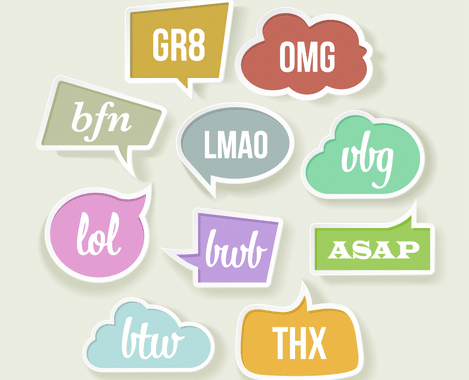
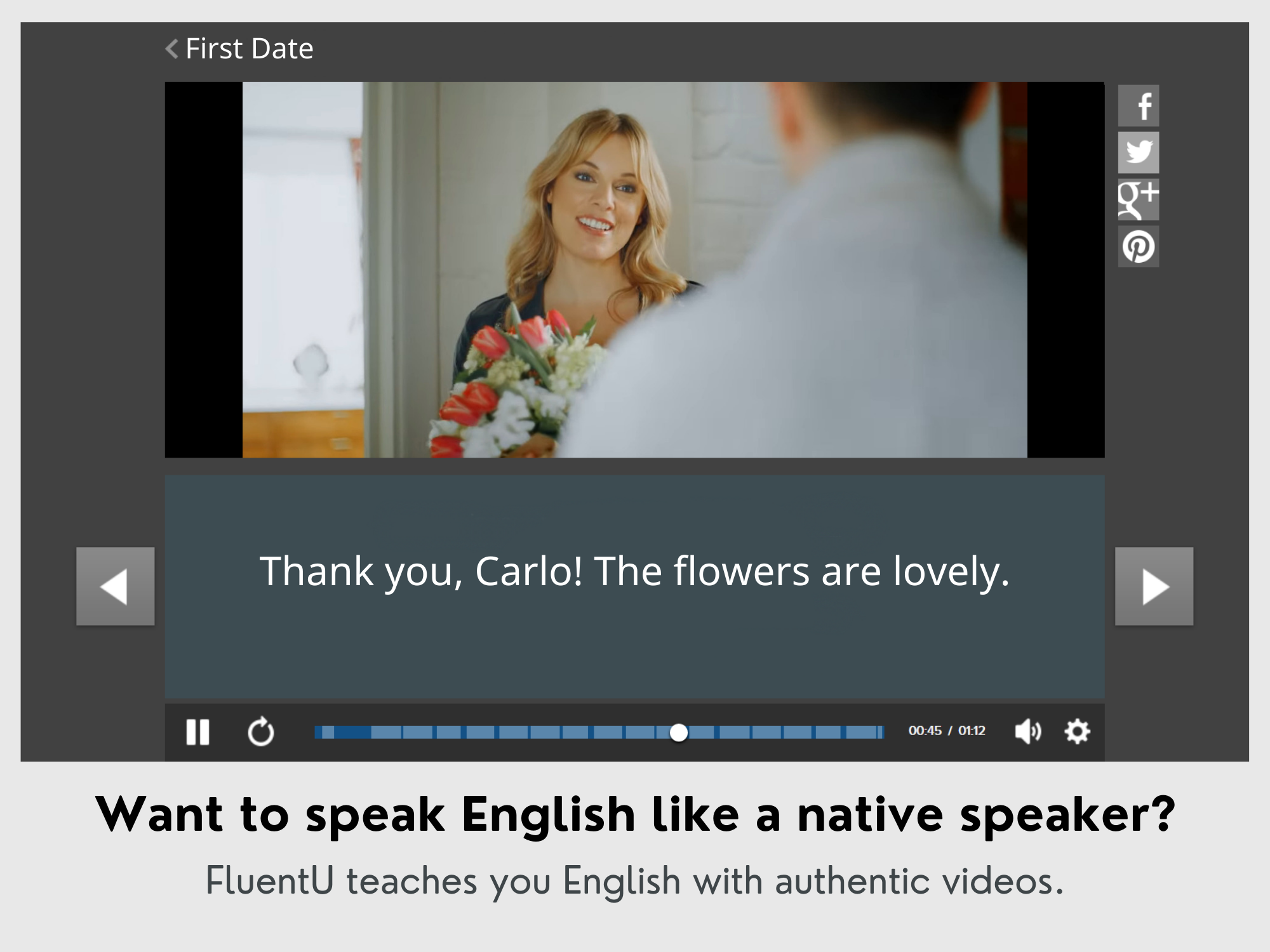
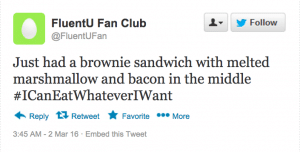
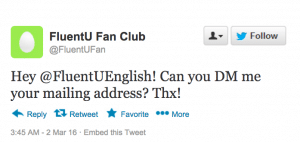
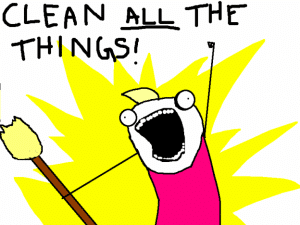
No comments:
Post a Comment